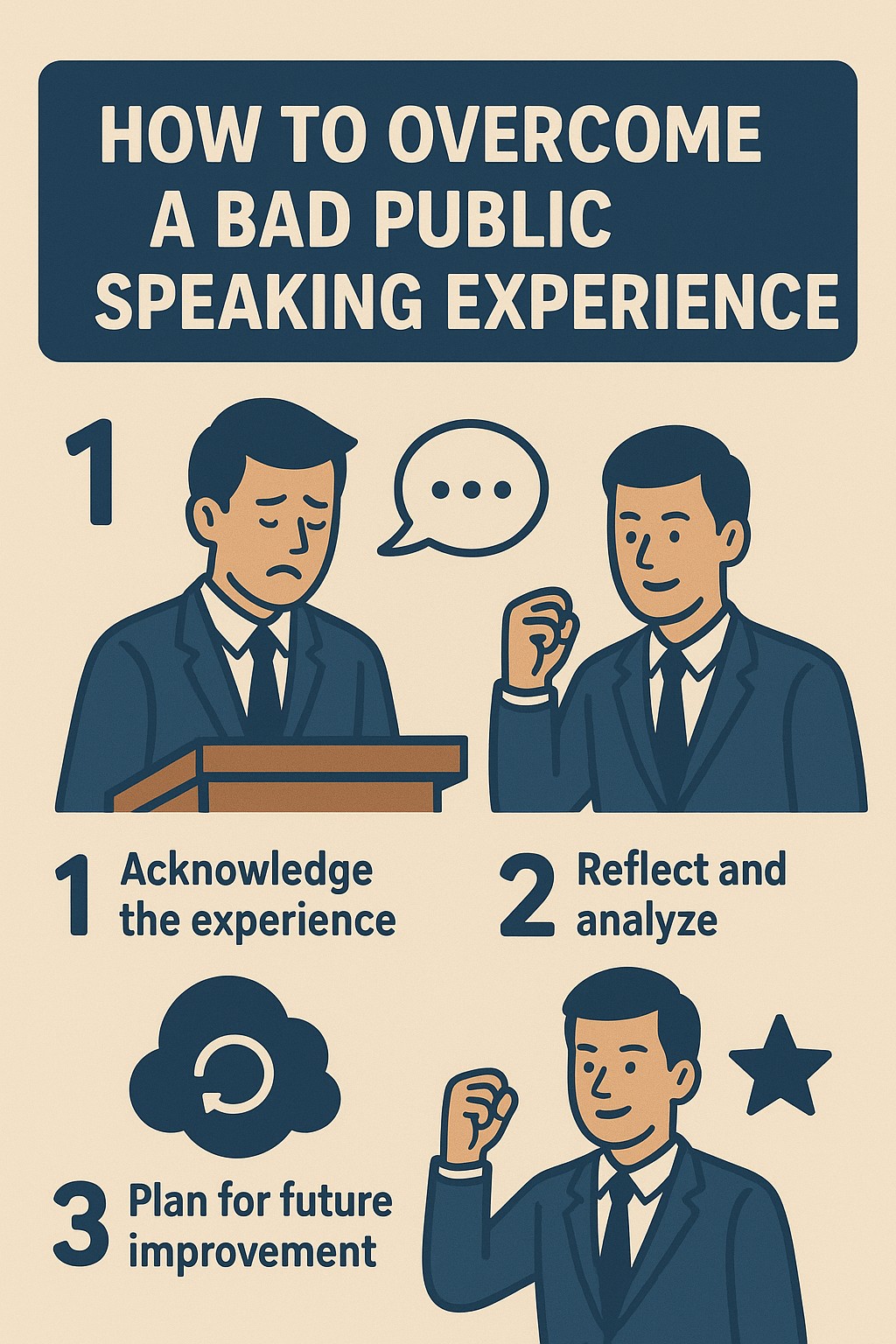Turn Setbacks into Strengths
A bad public speaking experience isn't the end of your story. It's the beginning of a stronger, more confident you. This guide provides the tools to reflect, rebuild, and return to the stage with renewed purpose.

1. Acknowledge & Reframe the Experience
Your immediate response to a tough experience is crucial. This section provides the first steps to process what happened, separating the event from your self-worth and turning it into a catalyst for growth.
Deconstruct, Don't Criticize
Objectively analyze what happened. What specific moments felt challenging? What went well? Write it down. Shifting from emotional recall to factual analysis removes the personal sting and reveals actionable insights.
Separate Performance from Person
A single speech is a performance, not a measure of your intelligence or value. Remind yourself that even the most accomplished speakers have off days. Your worth is not defined by one event.
Find the Lesson
Every setback contains a lesson. Maybe you needed more practice, a different structure, or better audience analysis. Frame the experience as valuable data that will make your next speech even better.
2. Prepare Your Anxiety Toolkit
Anxiety often stems from the unknown. By preparing a set of proven mental and physical strategies, you can regain control and manage nervousness effectively. Explore these techniques and find what works for you.
3. Build Confidence Through Practice
Confidence isn't something you have; it's something you build. Practice is the most reliable way to reduce fear and master your material. This section explores how to practice effectively and lets you visualize its impact.
Visualize the Connection
Use the slider below to see how increasing your preparation effort directly boosts your confidence level. Notice that the greatest gains in confidence come from moving from little preparation to being well-prepared.
Seek Constructive Feedback
Practice in front of a trusted friend or colleague. Ask for specific, constructive feedback, not just praise. Ask questions like, "Was my main point clear?" or "Where did my energy seem to drop?" Use this feedback to refine your delivery.
Record and Review
It can be uncomfortable, but recording yourself is one of the most powerful improvement tools. You'll notice verbal tics, awkward gestures, or pacing issues that you can then consciously work to improve.
4. Advance Your Skills with Help
You don't have to recover alone. Leveraging external resources can accelerate your progress and provide a supportive environment for growth. Consider these options to continue building your skills.
Join a Public Speaking Group
Organizations like Toastmasters International provide a safe, structured, and supportive environment to practice speaking regularly. You receive peer feedback and follow a curriculum designed to build skills incrementally. It's a low-pressure way to get back on stage.
Take a Course or Workshop
Many universities, community colleges, and online platforms offer courses on public speaking. These can range from one-day workshops to semester-long classes, often covering theory, structure, and delivery techniques in a formal setting.
Work with a Coach
For targeted, personalized feedback, a public speaking coach can be invaluable. A coach can help you work on specific challenges, prepare for high-stakes presentations, and provide expert guidance tailored to your unique style and goals.